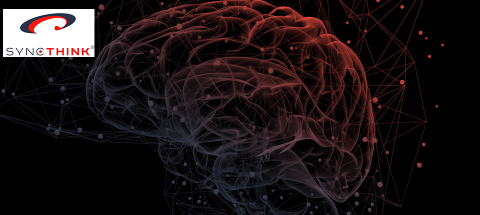
Dan Beeler and his team at SyncThink have developed technology to quickly evaluate the specific symptoms of a head injury. Originally designed for use by the military in Afghanistan, the technology is now making its way into the consumer realm as awareness about head injuries and concussions grow. Mass Tech sat down with him at the firm’s Canal Street office not long after the firm won the grand prize at the PULSE@ MassChallenge Finale.
Q. What does digital health mean to you?
Being able to use technologies that have been developed for things like cell phones, tablets, these mobile technologies and applying them to the health space to empower users to have more power over their health data and information. It is very different from the systems we’ve had in the past where everything has been very centralized, now we have technology that can take you directly from the field and connect you with an expert on the spot.
Q. Why is it important that we digitize the health world?
It’s important because we’re having a national conversation on the cost, quality and how healthcare should be delivered.
Q. How is SyncThink finding ways to improve care and reduce costs?
Our technology was not originally developed to be consumer technology, we worked with the U.S. Army to develop this technology as a direct way of measuring visual attention in order to determine cognitive performance and impairment. Along the way we’ve been able to leverage technologies like virtual reality to deliver this in a much more cost effective, mobile way than you could have ever envisioned in the beginning. This allows us to apply the technology in areas like athletics but also put it on a trajectory to make it cost effective for others.
The original concept behind the technology the thing that the military was very interested in was twofold: They wanted something mobile that they could use to evaluate battlefield readiness. The military had a lot of soldiers coming back with lasting head injuries and PTSD. It became a major issue in long term care for soldiers and they wanted technology to better evaluate their conditions. Eventually we were able to develop this technology into a mobile package that we could use off the shelf and bring to the consumer.
Q. What was the genesis of you or your company setting up shop in Massachusetts? And what kept you here?
Massachusetts is the best place to develop medical technologies. If you want access to any specialized skill, be it regulatory, software development, hardware design in the medical field you’re probably not going to find it in Bay Area.
Q. Is there a difference between the Bay Area and here? Is there a different type of person that sets up shop here?
There’s a difference in all levels. The Bay Area is more focused on consumer technologies. Unless you’re making a phone, any hardware is going to be oriented towards consumer technologies as well.
Q. What are some of the challenges you’ve faced?
Eye tracking is a difficult technology to commercialize. We’re trying to do it in a mobile form and that carries an additional set of challenges. Being able to take something that was limited to the size of my desk in a lab setting and building it into a headset that you can travel with is a major challenge. Development of the technology, use of it, and reliability, all took a significant effort to where we have it today.
Q. How does your technology work?
It’s an eye tracking platform. We measure your eye movements while we show you a target to follow, it’s a very simple target and it’s meant to be as simple as possible. It’s predictable. So, we measure how well you adapt to the target. Typical assessment takes about 60 seconds.
Q. Who are some of the leaders in the digital health space in Massachusetts?
One of the awesome things about the PULSE program, you get matched with the leaders in the space. We got matched with Shire Pharmaceuticals and we were able to develop new clinical approaches for our technology.
Vertex was a big sponsor of that program. Amgen was a big sponsor.
Q. What was your experience like with PULSE?
Being able to match with these traditional health companies provides us with a level of support to validate our technology, to gain really insightful feedback based on their experience, to gain customers, it was very important for us. The mentorship program was fantastic, connecting with regulatory expertise, remote health expertise, HIPAA expertise, business development, even VC provided feedback that we would not have received otherwise, it’s a really good program, really well designed and I think it’s going to grow in the coming years.
Q. Are there others beyond PULSE you can think of?
We wouldn’t have applied to PULSE without being told about it by MassVentures. They provided a lot of good advice. This is the first accelerator that we’ve done. MassChallenge hooks you into opinion leaders, provides resources, develops new markets that they wouldn’t have approached otherwise, and don’t take equity in your company, which is unique.
Q. What was it like to win?
We were very surprised and honored that our efforts got recognized, when you’re in it you’re not really looking around and seeing where other people are. When the other prizes were awarded and we weren’t named we thought there was no way we’d be the first out of this group, there’s a lot of great companies here and it’s an honor to be recognized.
